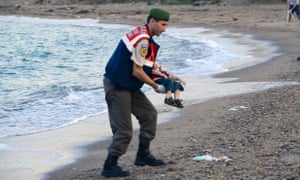On June 9, 2012, the Government of Canada published regulatory changes in the Gazette regarding the Private Sponsorship of Refugees Program (“PRSP“).
Under the PRSP, there are three types of sponsors. The first are Sponsorship Agreement Holders (“SAHs“). SAHs are local, regional, and national incorporated organizations that have signed multi-year agreements with Citizenship and Immigration Canada for the purpose of submitting sponsorship cases on a regular basis. The second are Groups of Five (“G5s“), which are five or more Canadian citizens or permanent residents who live in the applicant’s expected community of settlement who sponsor refugees. They account for 40% of the PRSP. The third are Community Sponsors (“CS“), which are organizations that have not signed formal agreements.
As of 2012, the PRSP has brought over 200,000 refugees and persons in refugee-like situations to Canada. As the PRSP has grown, so too didthe backlog and the refusal rate. Some missions abroad currently have waiting lists exceeding five years. Excluding Iraq, the average G5 approval rate is only 37%.
The proposed changes to the PRSP were meant to address this. The changes included requiring that the foreign national’s application for protection from abroad be submitted at the same time as the sponsor’s application. As well, the proposed amendments would limit G5s and CSs to submitting applications for persons recognized by either the United Nations High Commissioner for Refugees (“UNHCR“) or a foreign state as a refugee. An additional rationale for the changes to the PRSP to that in the Gazette can be found in the Memorandum to the Minister in which Citizenship and Immigration recommended the changes to Minister Kenney.
MemoPSPRWhen the changes were announced, the Canadian Bar Association expressed concerns with the requirement that privately sponsored refugees had to be recognized as refugees by the UNHCR. The Chair of the Immigration Section wrote:
Why Requiring UNHCR or Foreign State Recognition as a Refugee is Problematic
UNHCR processing goes through three stages: registration; determination and referral. Referral numbers are artificially small because the UNHCR has difficulties in placing refugees. The number and types of referrals are influenced by willingness of resettlement states to accept referrals. Many refugees needing resettlement are not referred by the UNHCR.
Malaysia is an example of the problems which arise by requiring referral for government assisted refugees. There, the UNHCR determines many Sri Lankan Tamils to be Convention refugees, but refers almost none of them. This group is direly in need of resettlement, because Malaysia treats them as illegals, harasses them, detains them, does not allow the children to go to school, does not allow them to work, denies them medical care and so on. The UNHCR, realizing the limited global willingness to accept referrals, does not, with few exceptions, refer this population for resettlement.
This practice of non-referral plus the cap creates a dire situation for Sri Lankan Tamils, driving them into the hands of smugglers. The proposed regulation would make matters worse. The proposed regulation works at cross purposes with Bill C-31: it cuts off a legal means available to those without UNHCR or foreign state recognition, named group of five or community private sponsorship. It will accordingly increase the likelihood of smuggling.
We accept the value of UNHCR and foreign state determination, although even those are not problem free. In many countries, UNHCR compounds are guarded by local police who exact heavy bribes from foreign nationals to allow access. Many do not go through the UNHCR registration and determination process because they cannot afford to pay the bribes. This problem is even more acute with foreign state determinations in corrupt states.
The Government of Canada is concerned with its own processing delays. However, in many countries with massive refugee influxes, UNHCR or foreign state processing delays are far worse.
No artificial devices are available to avoid these delays. Families of refugees in Canada would be better off awaiting Canadian processing delays than UNHCR or foreign state processing delays. Neither UNHCR nor Canadian refugee determinations are flawless. The Canadian system recognizes the fallibility of UNHCR and foreign state determinations by doing its own determination, even with a positive UNHCR or foreign state determination. The Government of Canada acts inconsistently by rejecting positive determinations as invariably correct and then refusing to process group of five or community sponsor cases with negative UNHCR or foreign state determinations.
If the positive UNHCR or foreign state determinations can be wrong, so, surely, can negative determinations. The proposed regulation assumes that either UNHCR or foreign state refugee determinations are available. However, in some states, neither is possible. For instance, Sri Lankan Tamil or Tibetan asylum seekers in India can not be determined to be refugees either by the UNHCR or by the Government of India.
In 2015, the image of a drowned Syrian child migrant, Aylan Kurdi, shocked the world.


